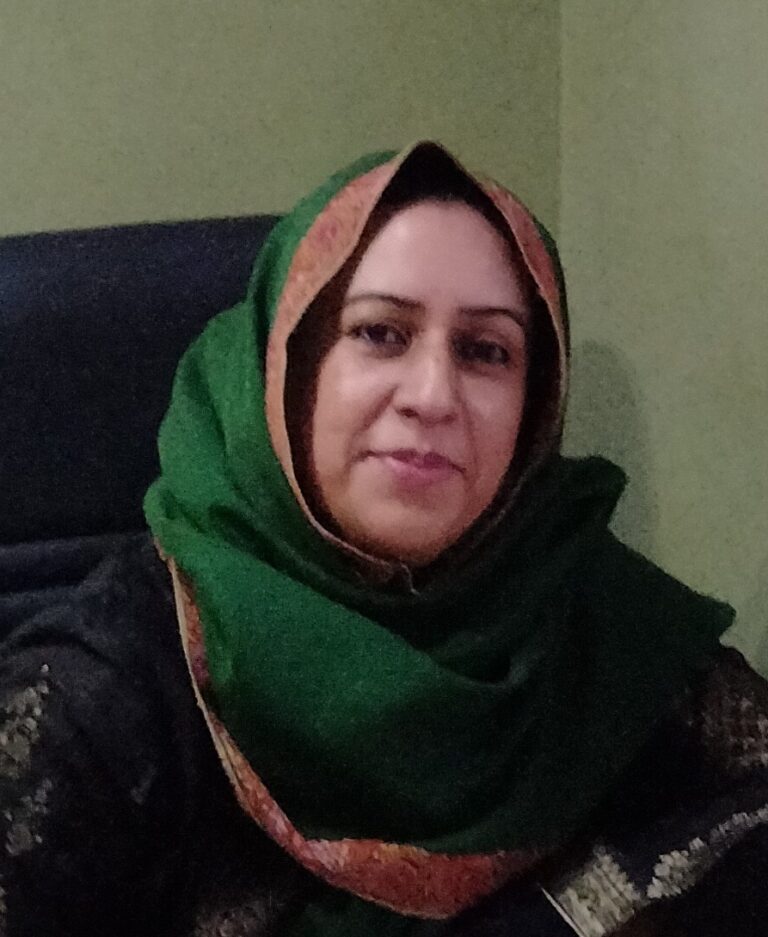Early healthy lifestyle intervention
An important step to save the health and well-being of our children
Post by DR. TAIZEENA KHAN Friday November 25, 2022

WHO (World Health Organization) – Defines health as complete physical, mental and social well-being and not just the absence of disease or infirmity. From a young age, children not only need love and care, but also a proper roadmap to healthy living. style. This roadmap should be designed keeping all health and wellness parameters in mind. It must not only focus on the physical and mental health of our children, but also on its social aspects. To achieve this goal, we need to strengthen the skills of parents. The health and wellness plan from the birth of a child will decide the future of our coming generations. During the last years of my clinical practice as a physiotherapist, I noticed that more and more young people were consulting me with musculoskeletal disorders. This sudden rise of my younger generation of patients, their lack of physical activity, unnecessary stress and lack of social framework that could provide them with a platform to practice a healthy lifestyle at an early stage pushed me to choose this topic today.
In recent years, children aged 12 to 18 have come to consult me with musculoskeletal disorders. In consulting/advising these young people, I have come to the conclusion that there is not only a lack of physical activities but also a lot of avoidable stress leading to unhealthy lifestyle choices in this age group. These days. To a large extent, I think technology has also played a big role in this. There is no doubt that technology has become an integral part of our daily lives. Technology has to a large extent made our lives easier, but at the same time, it has done so to the detriment of our physical, mental and social lives. It all starts when we, as parents, choose to give our children a smartphone. 6 months, so we can feed the child. Children are easily attracted to new toys and feature-rich smartphones are undoubtedly the best form of toy for them. There’s a cartoon that talks to them every time they press the button. The best fiction stories they could ever watch and everything they could get their hands on. Meanwhile, we don’t realize how much it would cost to bring this technology to them at this early stage in their lives. We happily accept making our child dependent on technology too early because it not only saves us time in this fast-paced world, but we also think we are making our child happy.
Physical inactivity among children is becoming a growing problem day by day and is considered epidemic according to research. The WHO (World Health Organization) reports that around 70% of boys and up to 88% of girls under the age of 10 do not get the physical activity they need for their age. Think about when we were growing up as kids. How did we spend our time at school and at home? There were no computers, no smartphones, and almost no technology. There was a good balance between our books, TV time and games. We were encouraged to go out and play. We had more real friends than social media friends that we could talk to and discuss our stress with. We also spent a lot of time on vacation with our extended family members, especially our grandparents. We listened to their stories, popular stories, real life experiences, etc. I remember going on long walks with my grandfather and, along the way, bothering him with lots of curious questions about trees, birds or whatever we saw. on our way. It helped me appreciate nature, love animals and observe things carefully. But times have changed. Today, we rarely see children playing after school or having a good social life. Pressure from parents to perform better academically, increasing access to technology, and lack of physical activity lead to overall physical, mental, and social problems in their lives.
This sedentary lifestyle resulting from various problems discussed above is the leading cause of childhood obesity, hypertension, heart problems, juvenile diabetes, anxiety, aggression, depression and other health changes. behavior and musculoskeletal disorders in children. Delayed growth and development in infants and toddlers is also observed due to the changing ways of raising our children and the increasing presence of technologies that take over our burdens. In recent years, more and more infants and young children are experiencing speech delays and learning disabilities. Investing time and effort in early childhood development from early childhood is relevant to stopping this epidemic and giving our children a better life. Plan a healthy and balanced lifestyle program for your child’s health and well-being.
Here are some tips for laying the foundation for our children’s health and well-being, the benefits of which will last a lifetime.
- Don’t introduce technology to your children at a young age.
- Instead, introduce games that stimulate their brain, for example educational and learning toys such as building blocks, numbers, shapes, colors, etc.
- Spend more and more time with them while they are still in their infancy. Read them a storybook, it encourages them to read and write.
- Feed them while they observe nature and don’t give them a smartphone, this helps them enjoy their food and develop their taste buds better.
- Encourage them to feed as soon as you think they are ready.
- Encourage them to do small independent activities, such as feeding themselves, combing their hair, brushing their teeth, tying their shoelaces, etc. This will not only help them stay physically fit but also independent.
- It is imperative to adopt a healthy and balanced diet and avoid junk food.
- Regularize feeding and sleeping times.
- Encourage them to go to bed early and don’t give them access to technology at bedtime.
- Limit time spent on technology, television and video games, for example, you can allow technology time, which includes any form of technology, to just 1-2 hours per day.
- Encourage them to spend more time playing games with their friends, extended family members, especially their grandparents.
- You can also select a day to play with your children, for example on weekends, this will help you bond with your children and will also help you and your children stay physically fit.
- Encourage them to spend more time playing outside.
- Encourage them to spend time with their grandparents, let them listen to their real life experiences and learn from them, encourage physical activity as much as possible.
- Bond with your children. Listen to them with an open mind and heart. Do not pressure them to achieve their academic or any other life goals, rather encourage them to succeed in life by providing them with all the support they need.
- Last but not least, be a practical example for your own children. Adopt a healthy lifestyle and they will follow you.
(The author is a Physiotherapist. She has done BPT (Bangalore India), PGDMS (London), MBA (USA). MIAP (Member of Indian Association of Physiotherapists). Fellowship in Geriatric Rehabilitation, pediatric rehabilitation fellowship, certified women’s health exercise expert)
